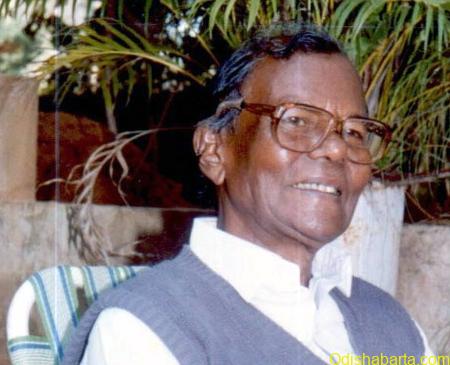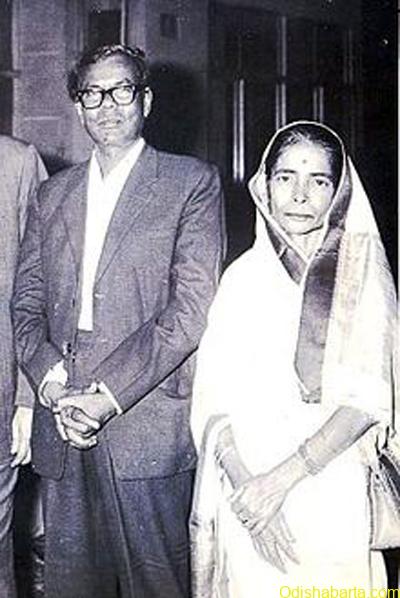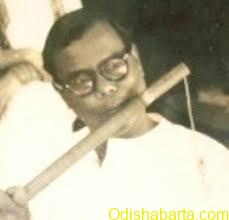Architect Of Oriya Literature

Author: Prasanta Patnaik, Senior Media Personality


With Mr. GopinathMohanty as the architect of the modern Oriya novel, this genre has become the most powerful in present-day Oriya literature. It is comparable to any written in any of the other Indian languages for its felicity of expression, richness, fresh themes and new techniques. Mr. Mohanty’s “AmrutaraSantan” (Son of the Immortal) was the novel which won the very first National SahityaAkademy award in 1955. His “ Matimalal” . (The Hard Soil) enhanced MrMohanty’s fame by wining theJanapith Award for him recently.
GopinathMohanty was born on 20th April, 1914. He Studied for his M.A. in English Literature at Ravenshaw College, Cuttack. Always a good scholar, MrMohanty stood first in M.A. in the whole of Patna University (at that time Orissa, Bihar and ChhotaNagapur were under the Patna University). Since he came from a lower middle class family, and lost his father at the age of twelve, ha had to struggle hard to pay for his college education. He gave private tuitions while studying his B.A. and M.A.
It was a student that Mr.Mohanty was inspired by the writings of Maxim Gorkey, Anton Chekov and Leo Tolstoy. We was very fond of revolutionary literature. He started writing while still a student and joined the modern group of Oriya writers, who were portraying the problems of the poorer sections of the people in their writing and were upholding the rights of the working classes as against the bourgeoisie. At that time, “Adhunilk”, a monthly edited by BhagabatiPanigrahi, the founder of communist party in Orissa, was the organ of this young group. Through his early writings, Mr Mohanty declared war against the Britishers and tried to disabuse his readers of their faith in the trend in the Biritishers. Before this the trend in Oriya novels had been different , quite fill of praises for the British Raj. Most earliernovers, including the works of Fakir Mohan Senapati, had extolled British officials as the only law givers who would never tolerate injustice. But being a patriot of a different mettle Mr. Mohanty was determined to point out the inhumanity of the Biritsh.
Mr. Mohanty joined Orissa administrative Service in 1938. Since he was criticical of the British administration, he suffered much in his service career and was superceeded by about 142 persons. He was special development officer for tribal projects for six years. Mr. Mohanty spent the major parts of his servie life in the tribal areas of Koraput district and became familiar with tribal life and rituals which colour his novels. He was no close to the tribals that they considered him one of them and not as an outsider.
His immortal novel “Matimatal” took him five years to complete. It is the story of a village and people who toiled hard on the soil bring about a socioeconomic change in the village. People who, by the dint of their sincere effort, established their village as an exemplary socialistic village. This is a unique novel full of graphic description of village scenes and different characters of a remote orissan village. In many places he has used the colloquial village dialects which makes his book more realistic and down-to-earth. Many critics do not consider “Matimatal” a novel at all; they call it “an epic of the soil”.
Mr. Mohanty is averse to describing sex or sexual acts in novels. He feels that sex is a crude urge and there is no poem in sex. Literature, therefore should not portray the sexual acts of human beings – there are more beautiful things in human life to be recorded in literature.
Love for tribals
Mr. Mohanty is very sympathetic to the tribals, who are “as pure as gold” and straight forward. While talking about the attitudes of so – called modern, polished and distinguished gentlemen from the urban areas, MrMohanty said, “When these people go the tribal areas and find that there is no known man to see their sins, they become as heineous as any cruel beast and run after the blood and sex of the poor, simple and helpless tribal girls.” He narrated the story of a Deputy Collector for whom girls were procured every night from the tribal villages. MrMohanty has portrayed this character in one of his novels, “Paraja”.
Speaking about the present administration, Mr. Mohanty said that while we were thinking about independence before 1947, we had and impression that those officials who were torturing the people would be punished. But, strangely, after the independence such men were honored and promoted to higher posts.
He said that though there were lot of material developments after independence people have been deprived of natural justice and corruption has spread through every stratum of administration and political life.
Mr. Mohanty, now lead’s a retired life in Bhubaneswar and devotes his time to literature. So far, he has written 19 novels, 125 short stories, two plays, two biographies and a lot of features on literature and tribal languages and one volume on Paraja and Kondh song collections. He has also translated Maxim Gorkey’s“ My University”, Rabindranath Tagore’s “ Jagajog” and JawaharlalaNehur’s “India Today and Tomorrow.” At present he his busy writing his autobiography will consist of at the end.
Mr.Mohanty is the most respeated Oriya writer who is rightly regarded as the architect of modern Oriya Literature.






